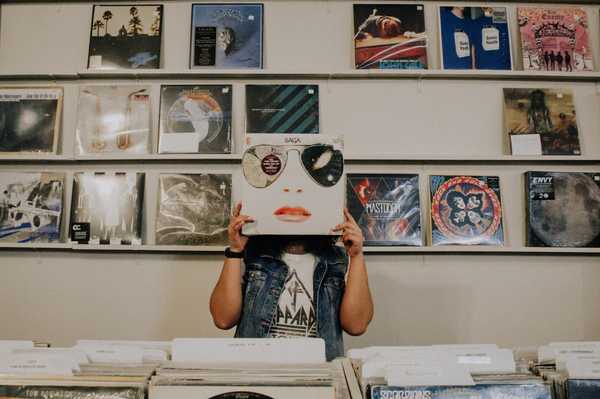{Hello again, thanks for tuning in! This’ll be the first in an intermittent series of articles on the topic of ADHD. Each will strive to grapple with the subject from a different angle. If you have anything you’d like to add, (your perceptions about ADHD, personal experiences, perspectives, etc..) then I entreat you to blow up the comments box. It would be very enriching to create a medley of voices on this multifaceted topic}
I’m among the tens-of-thousands of young adults living with ADHD. If I wasn’t working hard to unlearn the negative self-regard that my difficulties with it create, I wouldn’t be nearly as well-functioning as I am. Just as with countless others, grades K-12 taught me to view this innate feature of myself as being a deficit, a disorder. Even before entering the second grade, I knew verbatim the words this acronym serves: attention-deficit/hyperactivity disorder. The second and last terms in the line up (deficit and disorder) have tinged many aspects of my life.
Encyclopedia Britannica defines ADHD as “A behavioral syndrome characterized by inattention and distractibility, restlessness, inability to sit still, and difficulty concentrating on one thing for any period of time.” These attributes create a slew of difficulties in many sects of the 21st century job market.
New research suggests that the brains of individuals with ADHD are “hardwired to seek novelty." In fact, compared to people without it, ADHD sufferers “have sluggish and underfed brain reward circuits, so much of everyday life feels routine and under-stimulating.” Under-stimulating and straight up maddening! What do we do to keep sane? We search out stimulation by blaring our headphones, fidgeting pens at our desk, keeping 13 tabs open on our computer and all the while, one leg incessantly jitters like a humming bird’s wing. Many with ADHD confront discouraging obstacles in our society that requires rigid routines, self directness organization, and on-demand focus, often in less than exciting environments.
Just so we’re on the same page, though: This isn’t an article about how ADHD is the “most prevalent psychiatric illness amongst young people in America." Nor will it linger on the difficulty of having a brain that’s hard wired to work against the grain of our current society (I’ll perhaps save those for another time). On the contrary, it’s about ADHD from an an artist’s stand point; it’s about turning disorders into tools.
I’m a 22-year-old college senior with adult ADHD and, if I have any say in the matter, I’ll make a living doing what I love: sculpture/ illustration/ performance poetry/ and all forms of creative writing. Through Art College I’ve gained several outlooks and despite its status as a deficit, I’m now using ADHD to enhance my art and practice.
Last spring, we were assigned a reading that inadvertently contributed to this altered perspective. -The book, Steal Like an Artist. Written by Austin Kleon, this little New York Times best selling gem is packed with all kinds of good stuff! Rest assured that it’s not a book exclusively for artists, though.
As the author himself says on the first page, the book’s “ideas apply to anyone who’s trying to inject some creativity into their life and their work”. If there’s anyone fitting that description, then a glance through it is well wroth your time. It’s an easy and insightful read (and no, I am not being to paid to endorse it, though wouldn’t that be nice?). -I just verily dig the wisdoms within its pages and want to share the important connections it’s lead me to make. Austin begins by shattering a misconception that many young artists are beguiled into adopting, at the start of their schooling - That is: to become successful as an artist our art must be original! We think that to make a name for ourselves and concurrently, a living, our work must stand out as being uniquely and undeniably ours. Many artists, myself included, have answered this by narrowing our gaze. To create our distinct voice, we focus solely on our own work, putting on blinders that shroud the world.
As it turns out, this is a near impossible way to create anything novel - especially considering that there’s virtually no such thing as an original concept, thought, or work of art. Originality is a sham. Period. What we create, how we think and act… these all bare evidence of everything we’ve allowed to influence us as people, and as artists - “every new idea is just a mashup of one or more pervious ideas. “Wait-a-second, if that’s true, how does one create work that’s seemingly new, or distinctly their own?” This is where the Stealing comes in. Austin outlines 10 points about life as an artist, each building from a central principle that he establishes early on: Artists Steal. - Yup, they steal! If that’s an arresting concept, then stay with me, because this truth isn’t a new truth, not by any means:
“The only art I’ll ever study is art I can steal from” ~The Late, David Bowie
“Art is theft” - Pablo Picasso
“Immature poets imitate; mature poets steal; bad poets deface what they take, and good poets make it into something better, or at least different. The good poet welds his theft into a whole of feeling which is unique, utterly different from that from which it was torn.” - T.S. Eliot
“What is originality? Undetected Plagiarism.” - William Ralph Inge
This is a mere sampling of the quotes dispersed throughout the book. Most are from renowned artists (of all kinds) and most avow to some version of this wisdom: good artist’s steal and transform their thefts into something new. So rejoice, because being original isn’t something any of us need to concern ourselves with. “Original is out of the question, but what about “novel”? Can novel work be created?” Well, I think novelty and authenticity are nearly synonymous when it comes to art. Here’s a double quote (a quote within a quote) that helps shape my thinking on the matter:
“Steal from anywhere that resonates with inspiration or fuels your imagination. Devour old films, new films, music, books, paintings, photographs, poems, dreams, random conversations, architecture, bridges, street signs, trees, clouds, bodies of water, light and shadows. Select only things to steal from that speak directly to your soul. If you do this, your work (and theft) will be authentic. Authenticity is invaluable; originality is non-existent. And don’t bother concealing your thievery - celebrate it if you feel like it. In any case, always remember what Jean-Luc Godard said: “It’s not where you take things from - it’s where you take them to." - Jim Jarmusch
So the key to novel or authentic work is manifold beginning with a varied array of influences. Steal across genres, mediums, disciplines, cultures; steal from everywhere! By allowing ourselves to guided toward whatever resonates, we’ll steal only from those places that ignite us. Then we take our thefts beyond their original packaging. The way I see it: novel work is created when we’ve stolen from good source after good source, until what we’ve finally done becomes untraceable. You might be able to gleam a hint of something/someone we referenced, but that’s only after you’ve lost yourself in the way we transformed what we’d stolen. Lost, in the way we made it ours.
Steal like an artist also spends some time on this aspect. In the chapter, Garbage in, garbage out Austin stresses the importance of making good thefts. Living in a world surging with information overload, it’s easy to be lead into the wrong places; the places with nothing worth stealing. The danger? What we allow in, will effect what comes out. If we dilute ourselves with sub pare sources, then we’re watering down our art. So, what does ADHD have to do with all this?
- To be continued -





















